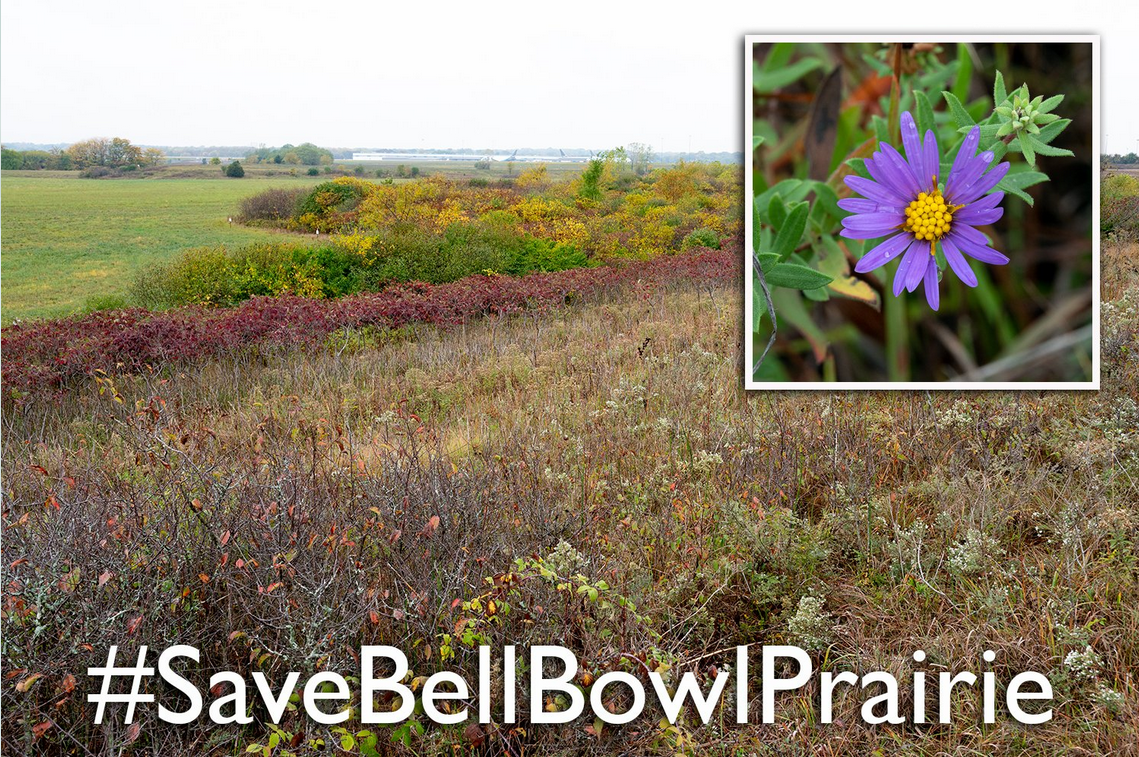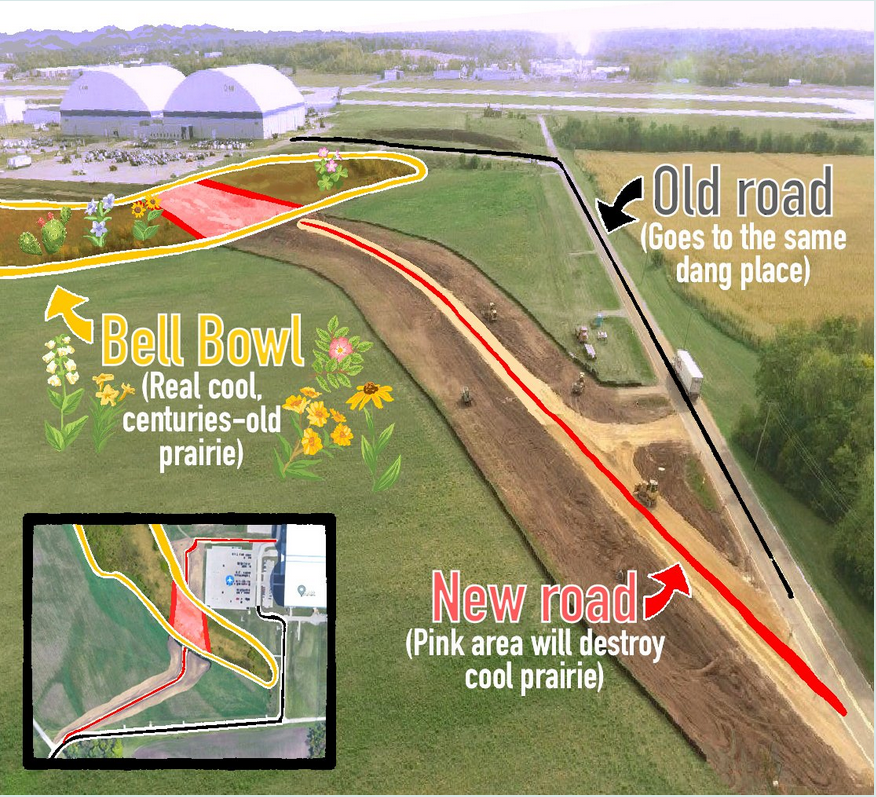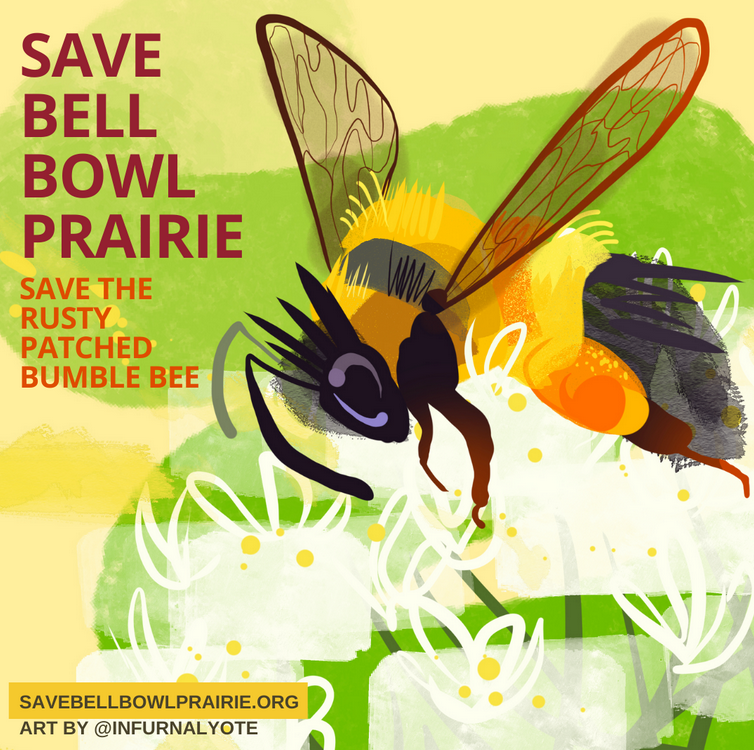If this rare virgin prairie is destroyed, it would take 1,000 years to replace it. Image by Mark Blassage.
By Susan Messer
A prairie is a stretch of flat grassland with moderate temperatures, moderate rainfall, and few trees. By the middle of the twentieth century, farming had destroyed nearly all the North American prairie grasslands. In Illinois, too, almost all the prairie was plowed up, except on land that was too steep, rocky, sandy, gravelly, or wet to cultivate.
One of the last remaining prairies in Illinois—8,000-year-old Bell Bowl Prairie in Rockford—is slated for destruction as the Chicago Rockford International Airport expands. Bell Bowl is a gravel prairie—among the rarest type of remaining prairie—and it contains some of the most intact and undisturbed natural plant communities found anywhere in the state. If the expansion occurs as the airport currently proposes, then rare, threatened, and endangered species will be destroyed—driven by growth in international shipping and Rockford’s role as a cargo hub for Amazon and UPS.
The current threat
Aerial photo from October 2021 shows the road the airport wants to build through the prairie. Annotation and illustrations by Liz Anna Kozik.
In the summer of 2021, Rockford residents noticed grading work occurring at the airport at Bell Bowl Prairie and notified the Natural Land Institute (NLI)—the nonprofit organization that has managed the prairie for decades—and the Illinois Department of Natural Resources (IDNR). They had learned that a planned road for heavy truck traffic would slice in half the highest-quality, five-acre section of the prairie and damage an array of rare plants. Even more crucial to this story, in August 2021, an IDNR biologist discovered the federally endangered rusty patched bumble bees on the site. As yet undiscovered lifeforms could be destroyed as well.
And thus the effort began to convince the airport and their consultants to consider redesigning the expansion plan to protect the high-quality natural area and endangered species: NLI filed a lawsuit in October 2021 to temporarily halt the bulldozers. And many meetings and protests have followed to make the argument that the airport could expand responsibly and in ways that would not negatively affect Bell Bowl Prairie or its rare plants and animals. Further, Save Bell Bowl Prairie advocates point out, these alternative plans can benefit both the prairie and the Rockford community. If state and federal agencies permit the destruction of this site, they would be signing off on the local extinction of some of the rarest plants in the state.
The latest
Illustration by @infurnalyote
In April 2022, the Federal Aviation Administration submitted a Biological Assessment to the U.S. Fish and Wildlife Service, concluding that the project "may affect, and is likely to adversely affect the Rusty Patched Bumble Bee." This is an important breakthrough—the first time the airport has publicly acknowledged the deleterious impact of its project on the habitat of Bell Bowl Prairie. The federal agencies have about four months to issue a “Biological Opinion” and direct the airport how to proceed.
Although Governor Pritzker has said that it’s possible to protect our environment while also creating jobs, that it’s not a trade-off, he has yet to weigh in on the Bell Bowl Prairie issue. In early May, protestors outside Pritzker’s Chicago home held a sign that read “Rusty-patched bumble bees have one home. Pritzker has five mansions.”
For a complete timeline of events in this fight to save Bell Bowl Prairie, check here.
To see what you can do to protect Bell Bowl Prairie, check here.



